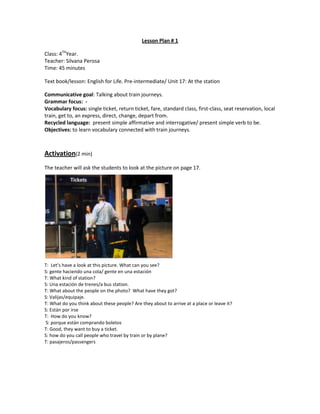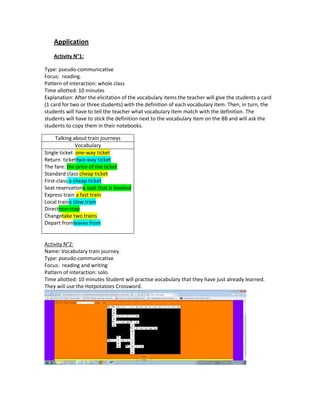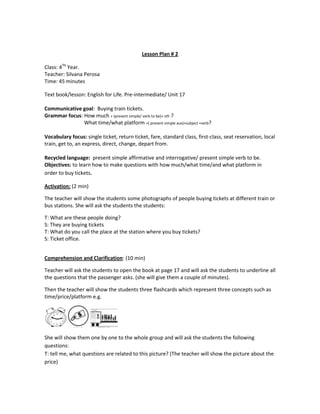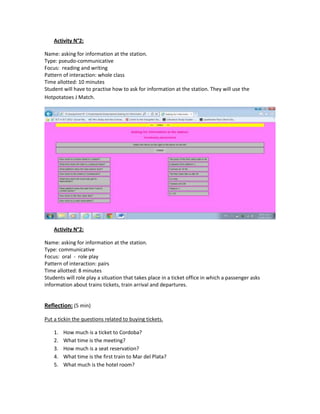The lesson plan summarizes a 3-part lesson on talking about train journeys. Part 1 focuses on learning vocabulary related to train tickets and stations. Students practice matching definitions to vocabulary words. Part 2 teaches how to form questions about ticket prices, departure times, and platforms in order to buy tickets. Students roleplay buying tickets. Part 3 reviews the topics through listening to dialogues and answering true/false questions about train information.











